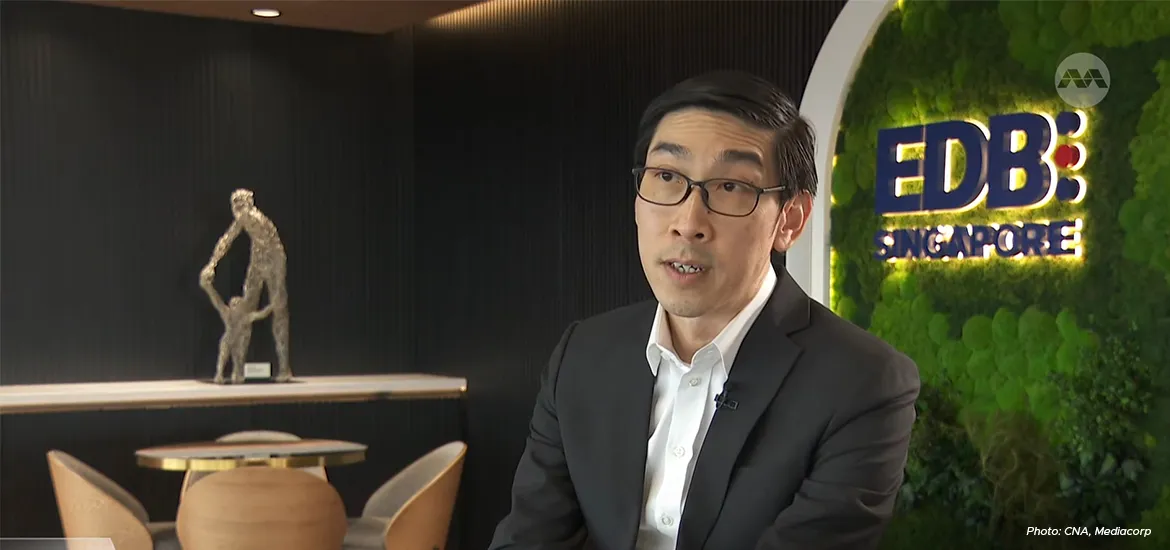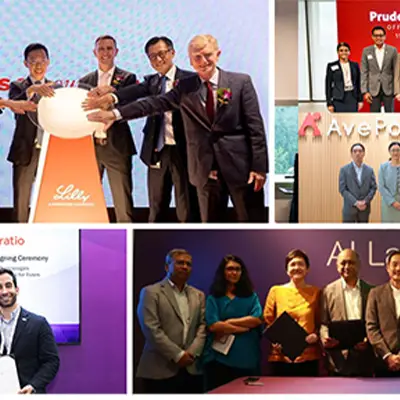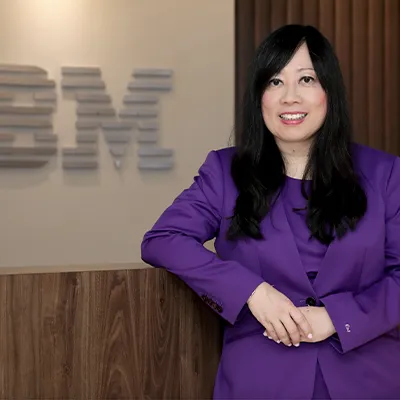In interviews with Mediacorp’s Channel NewsAsia and CNA938’s Daily Cuts podcast, EDB’s Executive Vice President Chan Ih Ming speaks about how AI startups are driving innovation, with large MNCs using AI to drive impact in their own businesses, as Singapore continues investing in its AI ecosystem.
This Q&A transcript has been edited for clarity
Can you tell us why we (Singapore) are seeing a lot more AI firms launching here?
Ih Ming: Many of them are looking for customers. They're also looking to make critical hires. They're looking for a trusted business ecosystem, too. Many of them are in Singapore, because of the confidence that investors have, [to] make significant investments for the long term. The Singapore government has been committed to the AI space, with increased funding this year. On revenue generation, a lot of these multinationals (MNCs) in Singapore are potential customers for these AI startups. They also run the region from Singapore, and so this is a natural place for them to come to look for customers. With our strong educational institutions and our openness to global talent, it's quite natural for people to come to Singapore to start a team.
Is this the beginning of a trend? Or are we already midway through it?
Ih Ming: I think we're still in the very early innings. Generative AI [models], like ChatGPT, popularised by OpenAI, only really came to the fore less than two years ago, in November 2022. So, this is still beginning. Since then, from our perspective, we've seen energy in two main areas: The first is startups like OpenAI and others that are driving innovation in AI. So, some of these companies are naturally looking at opportunities in our region. The second is large multinationals who are using AI to drive impact in their own existing businesses. The World Economic Forum announced that Coca-Cola, which has a manufacturing plant here in Tuas, Singapore, was named a Lighthouse factory. [These] are basically globally leading facilities that are recognised for using AI to drive productivity and throughput in their plants.
AI is a very big word; it's all encompassing. So, are we going to see more segmentation of the big AI companies that are going to come here?
Ih Ming: Well, you're right. I think there's a lot of excitement about Generative AI. But to your point, AI is much larger than that, and it's really about using data intelligently to make important decisions and impact in the real world. So, from our perspective, we try not to get caught up with labels, we're very focused on working with companies who are driving business impact. Whether that's in the manufacturing space or the financial services space. As an example, American Express has a decision science team in Singapore. The team has started using generative AI more in their marketing, in sales enablement and solutions. So, I think we're going to see more and more of this over time.
What kind of trickle down or domino effect will these developments have on Singapore? What do you foresee as some of the economic knock-on effects?
Ih Ming: There are some very immediate kinds of direct benefits. So, with more of these companies coming in, the kind of exciting job opportunities that this creates for people who are based here, especially in the engineering and technical space [will be] quite significant. The second area is an opportunity for all businesses who are based in Singapore — large and small — multinational or locally based, to adopt AI. To look to apply AI in their own business. Think of it as technology as a [competitive] edge; to compete better. So that's a benefit at the firm level. There are also significant benefits for our research institutions. NUS (National University of Singapore), NTU (Nanyang Technological University), even SIT (Singapore Institute of Technology) are involved. So, SIT, earlier this year, signed an agreement with Nvidia, who basically makes a lot of the semiconductor chips that are powering the AI revolution. They put together a centre that's focused on applied research. NUS is working with, companies like Grab and using AI for transportation, efficiency and reliability. So, I think it's quite multifaceted. [It’s] a front row seat to how AI is going to reshape a lot of these industries.
Is there a bigger proportion of the new investments falling into Gen AI or applied AI as well?
Ih Ming: I think it's still early to tell. Generative AI, like I said earlier, has only been a term that we started using in the last two years. There are different estimates, but, you know, you can easily say that there are several hundred of these generative AI companies over the last two years. But, more than the numbers, the value and the benefit really come down to how they're creating a real-world impact. So I've talked a little bit about manufacturing, financial services. We have a lot of local companies, who are looking at this, too. In the healthcare space, we have a company called Bot MD which started in Singapore, and it uses AI to create a system for clinicians—to empower doctors in their healthcare mission. So, we're in the early innings [of such] exciting stuff.
In the 80s and 90s, there was this sense that Singapore was looking towards Silicon Valley and replicating its successes here. And there was this concept of, maybe we missed the boat – maybe, San Francisco had built it up better. But right now, are we [in the] right place, right time, in a way? Do you think Singapore could be an AI capital of the world?
Ih Ming: We have a very unique combination of being in a growing region —Southeast Asia. Just to give a frame of reference [from] the digital economy in Southeast Asia, by some estimates — and this is from a report by Temasek, Google, [and Bain], called the e-Conomy [SEA] Report. By 2030, the digital economy will grow to about, about US$1 trillion (S$1.3t) [in gross merchandise value]. And 2030, is not too far away, so the scale of the digital economy is quite large. And clearly, AI as a force multiplier, kind of growing on the back of that digital economy, I think it's quite a significant opportunity. And we certainly want to encourage companies to pursue any of these opportunities that are before them. Instead of looking at competition, we're looking at opportunities.







